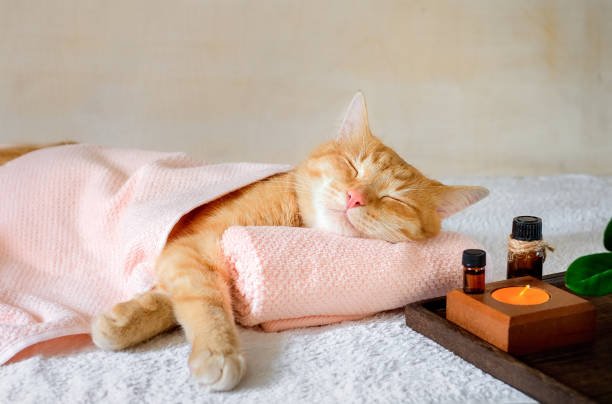Keeping your pet healthy goes beyond just occasional vet visits. Daily care routines can dramatically improve your pet’s well-being and help them live a long, happy life. From proper nutrition to regular exercise, here’s a detailed look at five essential tips that every pet owner should know.
1. A Balanced Diet is the Foundation of Health

Just like people, pets need a balanced diet to stay healthy. Providing the right nutrients, vitamins, and minerals can prevent a host of problems, from obesity to skin disorders. High-quality pet food that matches your pet’s specific needs—whether they are young, aging, active, or overweight—plays a crucial role in their overall health.
Tip: Always check the ingredients in pet food and avoid brands that use fillers like corn, soy, or wheat. Instead, choose foods rich in high-quality protein sources (like chicken, fish, or lamb), healthy fats (like omega-3s), and a balance of vegetables for fiber.
Additionally, monitor portion sizes to prevent overfeeding, as obesity is a growing problem for pets, leading to conditions like diabetes, joint issues, and heart disease.
2. Daily Exercise Keeps Pets Physically and Mentally Fit
Exercise is crucial for maintaining your pet’s physical health, but it also plays an important role in their mental well-being. Active pets are generally happier and less likely to develop destructive behaviors from boredom, such as chewing, digging, or scratching.
Tip: For dogs, aim for at least 30 minutes to an hour of exercise each day. This can be walks, playing fetch, or running in the yard. Even small indoor games like hide-and-seek or teaching new commands can keep them moving. For cats, interactive toys, laser pointers, or even setting up a simple obstacle course using boxes and tunnels can provide excellent stimulation.
For smaller pets, like rabbits or guinea pigs, create safe spaces where they can hop and explore freely outside their cages.
3. Regular Grooming: More Than Just Looking Good
Grooming does more than keep your pet’s coat shiny; it also helps prevent skin problems and allows you to check for health issues. Regular brushing can reduce shedding, prevent mats, and help you spot issues like rashes, bumps, or parasites early on.
Tip: Depending on your pet’s breed and coat type, brushing might be needed daily (for long-haired breeds) or weekly (for short-haired breeds). Also, don’t neglect nail care! Pets with overly long nails may experience discomfort while walking, which can eventually lead to joint issues or foot deformities.
Remember, grooming is a great bonding experience and allows your pet to get used to being handled.
4. Don’t Forget Dental Health

Dental hygiene is one of the most overlooked aspects of pet care, yet poor dental health can lead to serious issues like infections, tooth loss, and even systemic health problems affecting the heart, liver, and kidneys.
Tip: Brush your pet’s teeth at least a few times a week using a pet-specific toothbrush and toothpaste. If your pet doesn’t tolerate brushing, dental chews and toys designed to clean their teeth can help. You can also speak to your vet about professional dental cleanings, which may be necessary if there’s significant plaque buildup.
Early signs of dental disease include bad breath, red or swollen gums, and difficulty chewing. Regular dental care can prevent expensive treatments later on.
5. Vet Checkups: The Best Prevention
Even if your pet seems perfectly healthy, regular vet visits are crucial. Your vet can catch potential problems before they become serious, such as heart disease, kidney issues, or early signs of cancer. Preventative care, including vaccinations, heartworm prevention, and flea/tick control, is also essential.
Tip: Schedule at least one annual vet checkup for your pet, or more frequently for senior pets. Keep a log of any changes in behavior, appetite, weight, or activity level to discuss with your vet, as these can be subtle signs of underlying health issues.
Proactive care is always less costly and more effective than reactive treatments, so don’t skip these checkups.




